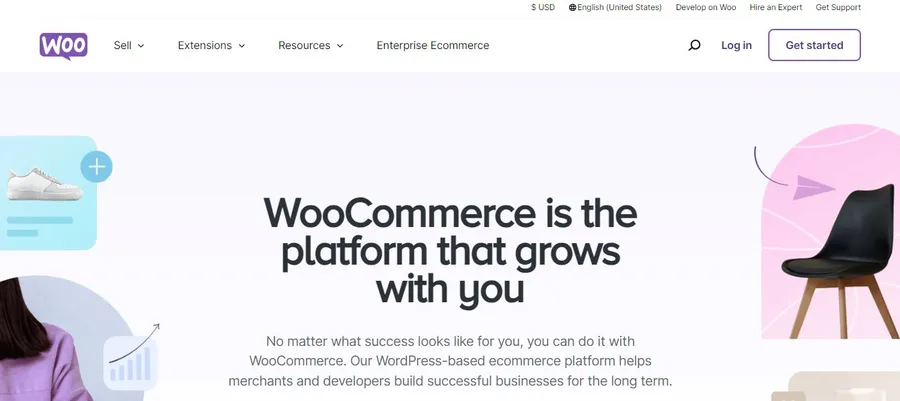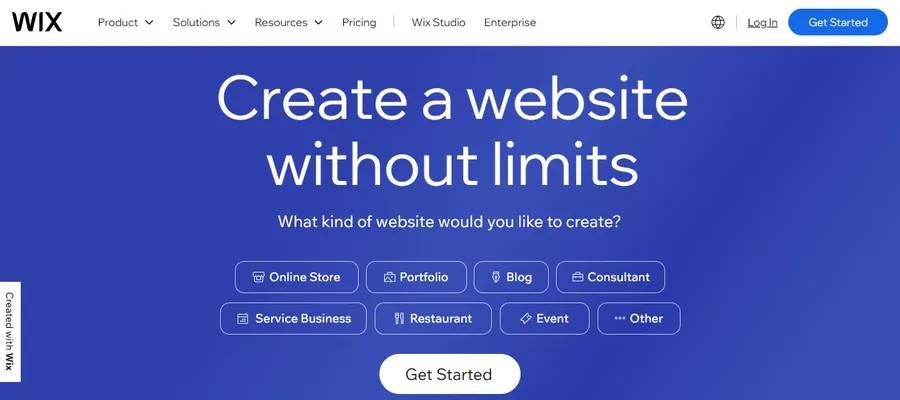What Is Ecommerce Website Development?
eCommerce website development is more than just building an online store – it’s the foundation of your brand’s success in the virtual marketplace. From showcasing products and facilitating transactions to providing exceptional user experiences, crafting an effective eCommerce website requires a blend of technical expertise and strategic planning.
Let’s delve into the essence of eCommerce website development, understanding what exactly is it, and why is it so crucial in the modern business landscape.
Claue – Clean and Minimal Magento Theme
We provide an amazing Magento theme with fast and responsive designs. Let’s find out!
What is eCommerce Website Development?
At its core, eCommerce website development is the process of designing, building, and maintaining a website that facilitates online transactions. It involves a complex interplay of various elements, including:
- Front-end Development: This focuses on the user interface (UI) and user experience (UX), ensuring the website is visually appealing, easy to navigate, and optimized for different devices.
- Back-end Development: This involves server-side programming and database management that power the website’s functionality, handling everything from product catalogs and inventory management to order processing and payment gateways.
- Security: Implementing robust security measures is paramount to protect sensitive customer data and prevent fraudulent activities.
- Marketing and SEO: Optimizing the website for search engines and implementing effective marketing strategies are essential to attract and retain customers.
Why eCommerce Website Development Matters
An eCommerce website offers a myriad of benefits for businesses of all sizes:
- Global Reach: An online store breaks down geographical barriers, enabling you to reach customers around the world 24/7.
- Increased Sales: By providing a convenient and accessible platform for customers to browse and purchase products, an eCommerce website can significantly boost sales.
- Improved Customer Experience: With features like personalized product recommendations, easy checkout processes, and order tracking, you can enhance the overall customer experience.
- Cost-Effectiveness: Compared to traditional brick-and-mortar stores, an eCommerce website can be a more cost-effective solution, with lower overhead costs and the ability to automate many processes.
- Data Insights: eCommerce platforms provide valuable data on customer behavior and preferences, helping you make informed business decisions.
Key Features of an eCommerce Website Development
To succeed in the competitive online marketplace, your eCommerce website should incorporate several key features:
- User-Friendly Interface: The website should be easy to navigate, with clear product categories, search functionality, and intuitive checkout processes.
- Mobile Responsiveness: With the increasing use of smartphones and tablets, your website must adapt seamlessly to different screen sizes.
- Product Catalog and Management: An efficient system for showcasing and managing product information, including descriptions, images, pricing, and inventory levels, is essential.
- Shopping Cart and Checkout: A streamlined shopping cart and checkout process, with multiple payment options and secure transactions, is crucial to converting visitors into customers.
- Customer Accounts: Allowing customers to create accounts for easy order tracking, saved payment information, and personalized recommendations can enhance their shopping experience.
- Marketing and SEO Tools: Built-in features for email marketing, social media integration, and search engine optimization can help you attract and engage customers.
- Analytics and Reporting: Access to data on website traffic, sales, and customer behavior can provide valuable insights to inform your marketing and business strategies.
eCommerce Website Development Platforms: Choosing the Right Fit
Various eCommerce website development platforms are available, each with its own set of features and pricing structures. Some popular options include:
Shopify

Shopify is a leading all-in-one eCommerce platform, providing businesses with everything needed to create and manage an online store. It’s known for its user-friendliness, extensive app store, and scalability.
Key Features:
- Drag-and-drop website builder
- Mobile-responsive themes
- Built-in payment processing
- Inventory management
- Marketing and SEO tools
- App store with thousands of integrations
Pricing: Plans start at $29/month.
BigCommerce

BigCommerce is another popular eCommerce platform, ideal for growing businesses. It offers powerful features and flexibility, with a focus on scalability and enterprise solutions.
Key Features:
- Customizable themes
- Headless commerce capabilities
- Multi-channel selling
- Advanced SEO features
- Robust API
- B2B functionality
Pricing: Plans start at $29.95/month.
WooCommerce

WooCommerce is a free, open-source eCommerce plugin for WordPress. It’s a flexible option for businesses that already have a WordPress website, offering full control and customization.
Key Features:
- Complete customization
- Access to thousands of WordPress themes and plugins
- Built-in blogging capabilities
- Extensive community support
- SEO-friendly
Pricing: Free, but requires a WordPress website and hosting.
Magento

Magento is a powerful open-source eCommerce platform known for its flexibility, scalability, and extensive customization options. It’s a popular choice for large businesses and enterprises with complex requirements.
Key Features:
- Highly customizable
- Advanced SEO capabilities
- Multi-store management
- Robust API
- B2B functionality
- Large community and extension marketplace
Pricing: Free (Open Source), but requires hosting and development expertise. Magento Commerce (cloud-based) starts at $22,000/year.
Wix

Wix is a user-friendly website builder with eCommerce capabilities, ideal for small businesses and beginners. It offers a drag-and-drop interface, beautiful templates, and a wide range of features.
Key Features:
- Drag-and-drop website builder
- Mobile-responsive templates
- Built-in SEO tools
- App market with various integrations
- Abandoned cart recovery
- Multi-channel selling
Pricing: eCommerce plans start at $27/month.
Squarespace

Squarespace is another popular website builder with eCommerce functionality, known for its stylish templates and focus on design. It’s a good choice for businesses that prioritize aesthetics and simplicity.
Key Features:
- Award-winning templates
- Built-in marketing tools
- Mobile Optimization
- Inventory management
- Secure checkout
- Integrations with social media and other platforms
Pricing: eCommerce plans start at $23/month (billed annually).
When choosing an eCommerce platform, consider factors such as your budget, technical expertise, business size, and future growth plans.
The eCommerce Website Development Process
Developing an eCommerce website typically involves several key stages:
- Planning and Research: Define your target audience, business goals, product offerings, and branding. Conduct market research to understand your competition and identify opportunities.
- Design: Create a visually appealing and user-friendly website design that aligns with your brand identity and caters to your target audience.
- Development: Build the website’s front-end and back-end functionality, integrate necessary features, and ensure seamless performance.
- Testing: Thoroughly test the website across different devices and browsers to identify and fix any bugs or issues.
- Launch: Deploy the website and make it live for customers to access.
- Maintenance and Optimization: Regularly update content, monitor performance, and implement improvements to enhance user experience and drive conversions.
Conclusion
eCommerce website development is a complex but rewarding process that can significantly impact your business’s success in the digital age.
By understanding the key elements, features, and platforms, you can create a powerful online store that attracts customers, drives sales, and fosters growth. Whether a small startup or a large enterprise, investing in a well-designed and functional eCommerce website is essential to thrive in the competitive online marketplace.
Remember, your eCommerce website is more than just a digital storefront; it’s a dynamic platform that represents your brand and connects you with customers worldwide.
Read more: Top 10 Magento Payment Gateways to Boost Your Sales



